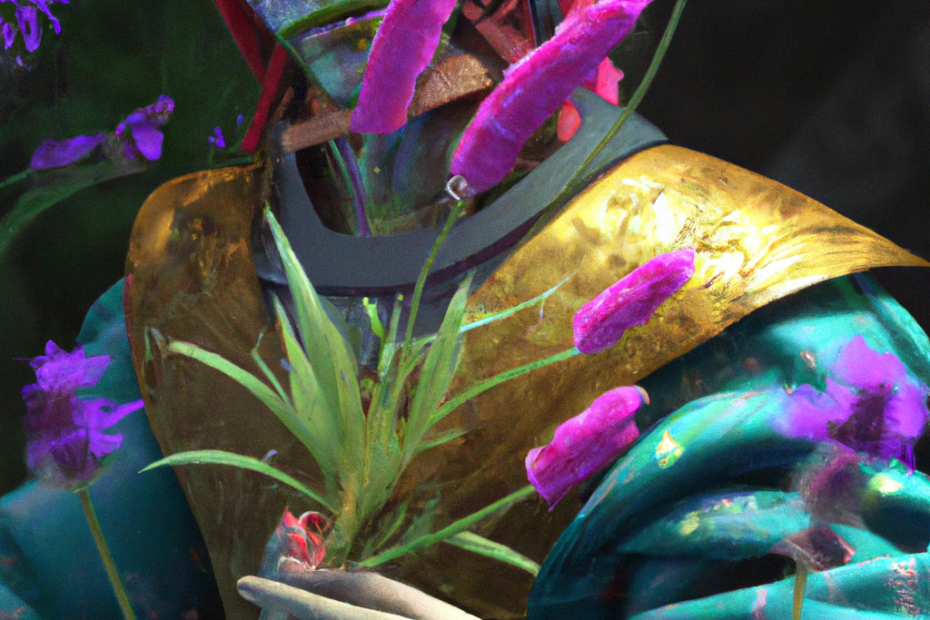Salvia, also known as Salvia divinorum, is a plant native to Mexico and has been used for centuries in traditional healing and spiritual practices. In recent years, it has gained popularity in the United States and has raised questions about its legality and the potential risks associated with its use.
In this article, we will explore the effects of salvia, its legal status in Indiana, and the associated risks and precautions for those considering using it in the state. We will delve into the hallucinogenic properties of salvia, the distorted perception of time and changes in mood and perception that users may experience. We will examine the history of salvia legalization in Indiana, current laws and regulations, as well as the penalties for possessing and distributing salvia.
We will discuss the health, legal, and social risks of using salvia in Indiana, and provide practical tips on how to stay safe when using salvia. Whether you are curious about the effects of salvia, its legal status, or seeking guidance on harm reduction strategies, this article aims to provide a comprehensive understanding of salvia and its implications in the state of Indiana.
What Is Salvia?
Salvia, also known as sage, is a genus of plants in the mint family, Lamiaceae, that encompasses a wide range of species known for their aromatic foliage and distinctive appearance. These plants are often cultivated for ornamental purposes and sometimes for their medicinal properties.
With over 900 species, Salvia has variations in its foliage, ranging from vibrant green to silvery gray, often adorned with delicate hairs. Some popular species include Salvia officinalis, commonly known as common sage, utilized in culinary dishes for its savory flavor, and Salvia divinorum, sought after for its psychoactive properties.
Apart from their aesthetic appeal, many varieties of Salvia are also valued for their potential medicinal benefits, with traditional uses ranging from alleviating sore throats to treating digestive issues.
What Are The Effects Of Salvia?
The effects of Salvia, particularly Salvia divinorum, are primarily hallucinogenic in nature, leading to altered perceptions, vivid experiences, and sometimes dissociative states. The plant contains active compounds that can induce profound psychoactive effects when consumed or smoked, resulting in intense sensory distortions and altered consciousness.
These psychoactive compounds, such as Salvinorin A, interact with the kappa opioid receptors in the brain, triggering powerful hallucinogenic effects. Users commonly report visual and auditory distortions, time dilation, and feelings of detachment from reality.
The altered states of consciousness induced by Salvia can vary in intensity, with experiences ranging from profound introspection to profound disorientation. It’s important to note that the effects of Salvia can be unpredictable and may not be suitable for everyone.
Hallucinations
The primary effect of Salvia consumption is the induction of vivid and often intense hallucinations, which can manifest as perceptual distortions, imaginary landscapes, or altered sensory experiences.
These hallucinatory effects are attributed to the psychoactive compounds present in the plant, triggering profound alterations in perception and cognition. Salvinorin A, the main psychoactive component of Salvia, interacts with kappa opioid receptors in the brain, leading to complex visual and auditory hallucinations. Users often report feeling transported to alternate dimensions, encountering bizarre entities, or experiencing time dilation. Such experiences can be deeply unsettling and disorienting, making Salvia one of the most potent naturally occurring hallucinogens known to induce intense and immersive altered states of consciousness.
Distorted Perception Of Time
Consumption of Salvia can lead to a distorted perception of time, with individuals experiencing time dilation, temporal disorientation, and a sense of timelessness. The plant’s psychoactive properties contribute to this temporal distortion, often resulting in subjective alterations in the passage of time and temporal awareness.
This altered time perception can make minutes feel like hours or seconds, leading to a profound disconnection from the external world. Individuals may report feeling as though time has slowed down or stopped altogether, while others have described a sense of time moving in a non-linear fashion. Such temporal disorientation can be disconcerting, contributing to the unique and intense subjective experiences associated with Salvia use.
Changes In Mood And Perception
Salvia consumption can bring about profound changes in mood and perception, often leading to heightened emotional responses, altered cognitive processing, and shifts in personal awareness. These effects contribute to the overall psychoactive experience induced by the plant’s active compounds, impacting the user’s emotional and cognitive states.
The altered emotional responses may range from heightened euphoria to intense introspection, leading individuals to perceive and interpret their surroundings in novel ways. The impact of Salvia on cognitive processing can result in the distortion of time, space, and sensory perceptions, often blurring the boundaries between reality and imagination. These alterations in mood and cognition provide a rich insight into the complex interplay between psychoactive substances and the human mind, offering avenues for further exploration and understanding.
Is Salvia Legal In Indiana?
The legal status of Salvia in Indiana has been a subject of legislative scrutiny and regulatory changes, with the plant’s legality being a topic of considerable debate and legal enforcement. The state laws and regulations pertaining to Salvia have evolved over time, reflecting efforts to address its classification as a controlled substance.
Salvia’s legal journey in Indiana dates back to the early 2000s when concerns about its potential for misuse prompted legislative efforts to regulate its availability. In 2009, the Indiana General Assembly passed a bill to classify Salvia as a Schedule I controlled substance, effectively prohibiting its sale, possession, and use. This decision stirred controversy and sparked ongoing debates regarding the plant’s therapeutic benefits versus its potential for abuse.
Despite the classification, discussions on revisiting the legislation continue, fueled by advocates emphasizing its traditional and ceremonial significance.
History Of Salvia Legalization In Indiana
The history of Salvia legalization in Indiana is characterized by a series of legislative actions, regulatory measures, and public discourse surrounding the plant’s legal status. The state has witnessed shifts in its approach to Salvia, from periods of unregulated availability to subsequent attempts to control and restrict its distribution and use.
The initial legislative actions concerning Salvia in Indiana focused on researching its effects and considering potential regulatory measures. As public awareness increased, there were debates about the plant’s classification and the need for specific regulations.
Over the years, various bills aimed at modifying the legal status of Salvia were introduced in the state legislature, reflecting the evolving attitudes and concerns surrounding its use. This ongoing dialogue between lawmakers, regulators, and the public has played a significant role in shaping the current legal framework for Salvia in Indiana.
Current Laws And Regulations
The current laws and regulations governing Salvia in Indiana encompass provisions aimed at restricting its availability, regulating its sale, and addressing its classification as a controlled substance. These legal measures reflect the state’s efforts to manage the plant’s potential risks and mitigate its impact on public health and safety.
They are designed to ensure that the plant is not easily accessible to the public, especially to individuals who may misuse or abuse it. Salvia is classified as a Schedule I controlled substance in Indiana, placing it in the category of substances with the highest potential for abuse and addiction. This classification imposes strict regulatory measures on its sale and distribution, emphasizing the state’s commitment to safeguarding public health and welfare.
Penalties For Possessing And Distributing Salvia
In Indiana, penalties for possessing and distributing Salvia are delineated in accordance with the state’s controlled substance statutes, with specific legal consequences for unauthorized possession, distribution, or sale of the plant or its active compounds. These penalties are designed to deter illicit activities involving Salvia and reinforce regulatory compliance.
Individuals found possessing Salvia in Indiana can face significant legal ramifications, including fines, probation, and potential imprisonment. The enforcement mechanisms involve law enforcement agencies conducting investigations and surveillance to identify and apprehend those involved in illegal Salvia possession and distribution.
The regulatory intent behind these penalties is to mitigate public health risks associated with Salvia use and maintain the integrity of the state’s controlled substance regulations.
What Are The Risks Of Using Salvia In Indiana?
Using Salvia in Indiana entails various risks encompassing health implications, legal repercussions, and social considerations, reflecting the multifaceted impact of the plant’s psychoactive effects on individuals and communities. These risks contribute to the ongoing dialogue surrounding the responsible use and regulation of Salvia within the state.
The potential health risks associated with Salvia use include altered perception, hallucinations, and loss of coordination, which could lead to accidents and injuries. From a legal perspective, Salvia is classified as a controlled substance in Indiana, leading to potential legal consequences for possession and distribution.
The social impacts of Salvia use can disrupt relationships and community harmony, posing challenges for individuals and families. These complex dynamics highlight the need for comprehensive education and regulation regarding Salvia in Indiana.
Health Risks
The use of Salvia in Indiana poses potential health risks, including the emergence of adverse reactions, psychological distress, and the exacerbation of pre-existing mental health conditions. These health risks are attributed to the plant’s psychoactive properties, necessitating awareness and caution among individuals considering its use.
Users can experience adverse effects such as hallucinations, disorientation, and dizziness, which can lead to accidents and injuries. The psychological distress associated with Salvia use may manifest as anxiety, paranoia, or even episodes of acute psychosis.
Individuals with underlying mental health issues are at a higher risk of experiencing exacerbated symptoms, including depression and mood disturbances. It is crucial for healthcare practitioners and the public to recognize the potential implications for mental health when discussing the use of Salvia in Indiana.
Legal Risks
Engaging in the use of Salvia in Indiana presents legal risks, as the plant’s classification as a controlled substance necessitates adherence to state laws and regulations. Violations of these legal provisions can lead to legal consequences, highlighting the importance of understanding and complying with the prevailing legal framework.
The controlled substance status of Salvia in Indiana means that individuals must familiarize themselves with the specific regulations governing its use, possession, and distribution within the state. Legal compliance is essential to avoid potential penalties and criminal charges.
It’s crucial for individuals to be aware of the potential ramifications of violating state laws related to Salvia, as such infractions can result in fines, imprisonment, and a permanent criminal record, significantly impacting an individual’s future opportunities and freedom. Therefore, staying informed about legal risks associated with Salvia is vital to make informed decisions and avoid severe legal consequences.
Social Risks
The use of Salvia in Indiana may entail social risks, encompassing interpersonal dynamics, community perceptions, and potential stigmatization associated with its use. These social risks contribute to the broader discourse on responsible substance use and the impact of psychoactive substances on social environments.
Understanding the interpersonal implications of Salvia use involves acknowledging the strains it may place on personal relationships and the potential for misunderstandings. Community perceptions of Salvia use can vary widely, from acceptance to disapproval, shaping the overall attitudes towards its use. Such dynamics underscore the need for nuanced discussions on substance use within society, considering the diverse viewpoints and impacts it can have on social cohesion and well-being.
How To Stay Safe When Using Salvia In Indiana?
Staying safe when using Salvia in Indiana involves a comprehensive understanding of the state’s laws and regulations, ensuring the purchase from trusted sources, and responsible consumption within a safe and controlled environment. Adhering to these principles is crucial for mitigating potential risks and promoting informed and secure usage.
By familiarizing oneself with the specific laws governing Salvia in Indiana, individuals can ensure legal compliance while purchasing this botanical substance from reputable and authorized sources. It is imperative to prioritize the quality and authenticity of the product to guarantee safety and efficacy. Practicing responsible and controlled consumption of Salvia is essential to avoid adverse effects and maintain a positive and meaningful experience.
Know The Laws And Regulations
Being aware of the laws and regulations governing Salvia in Indiana is essential for ensuring safety and legal compliance, enabling individuals to make informed decisions regarding its acquisition, possession, and use within the state. Understanding the legal framework is a fundamental aspect of promoting safe and responsible usage.
It is important for individuals to be aware that the legal framework also serves to safeguard public health and prevent misuse of substances like Salvia. By understanding the regulations, individuals can avoid legal repercussions and ensure that their usage aligns with the state’s guidelines, promoting a safe and responsible environment for themselves and others.
Legal awareness empowers individuals to advocate for necessary regulations and contribute to the development of comprehensive measures for the controlled use of Salvia.
Purchase From A Trusted Source
Procuring Salvia from a trusted and reputable source is a critical aspect of ensuring safety and product quality, as it minimizes the risks of adulteration, contamination, or the acquisition of substandard formulations. Choosing a reliable source is integral to promoting safe and reliable Salvia usage.
When purchasing Salvia in Indiana, consumers should prioritize sourcing from established providers with a proven track record in adhering to quality and safety standards. This significantly reduces the likelihood of encountering products that may be compromised or fail to meet regulatory requirements.
Trustworthy sources often prioritize quality control measures and adhere to industry standards, ensuring that consumers receive authentic and unadulterated Salvia products, reinforcing the importance of making informed and cautious buying decisions.
Use In A Safe And Controlled Environment
Consuming Salvia in a safe and controlled environment is paramount for minimizing potential risks, ensuring personal well-being, and promoting responsible usage.
This approach not only fosters a sense of security but also encourages individuals to partake in a mindful and respectful manner. By incorporating responsible consumption practices, individuals are more likely to experience positive outcomes and avoid the adverse effects that can arise from careless usage.
Emphasizing the significance of safe environments and responsible usage is essential for fostering a culture of well-being and harm reduction in Indiana.
Frequently Asked Questions
Is Salvia legal in Indiana?
1. What is Salvia and is it legal in Indiana?
Salvia is a psychoactive plant that is often used for recreational purposes. In Indiana, Salvia is currently legal to possess and use.
2. Can I purchase Salvia in Indiana?
Yes, Salvia can be purchased in Indiana from various smoke shops and online retailers. However, it is important to note that the sale of Salvia to minors is prohibited.
3. Do I need a license to possess Salvia in Indiana?
No, a license is not required to possess Salvia in Indiana. However, it is important to use it responsibly and in accordance with state laws.
4. Is it legal to grow Salvia in Indiana?
Yes, it is legal to grow Salvia for personal use in Indiana. However, selling or distributing it without a license is prohibited.
5. Can I use Salvia in public in Indiana?
No, it is illegal to use Salvia in public places in Indiana. It is considered a controlled substance and should only be used in private settings.
6. Are there any restrictions on the amount of Salvia I can possess in Indiana?
Yes, there are restrictions on the amount of Salvia you can possess in Indiana. It is illegal to possess more than 2 ounces of Salvia at a time. Possession of larger quantities may result in criminal charges.
John Marston, a seasoned writer since 2009, has penned hundreds of articles on Salvia Divinorum across the web. As a full-time writer at a prominent online salvia retailer, he continues to contribute valuable insights, combining expertise and passion to unravel the diverse facets of Salvia Divinorum. Beyond his writing, John serves as a budtender in the cannabis industry.




